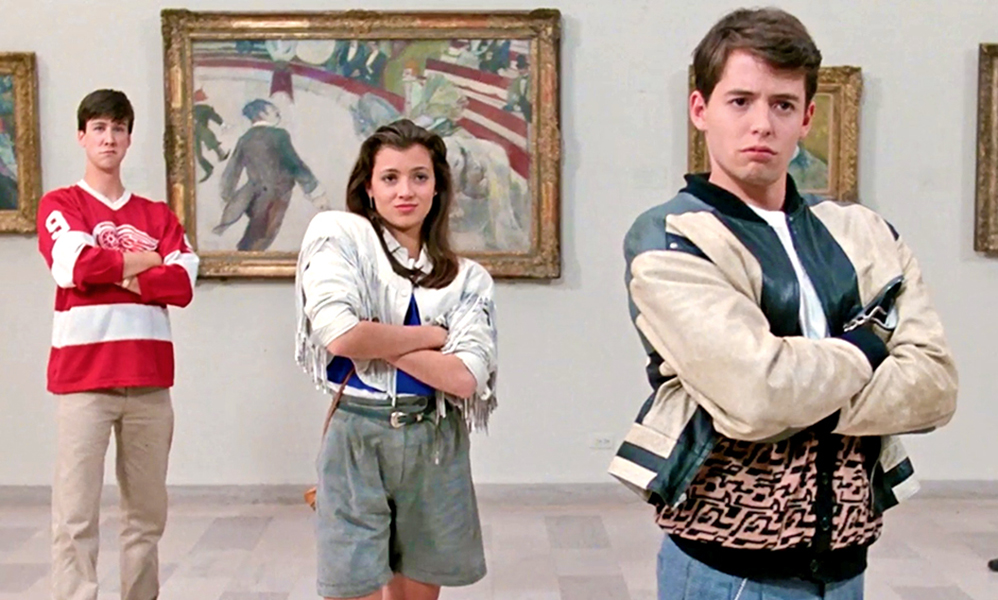There are a lot of iconic movies that have passed me by for one reason or another. For the longest time, Ferris Bueller’s Day Off was one of those films. The name kept cropping up as one of the signature films of its era so, in an effort to catch up on my pop culture exposure, I finally watched the movie on Netflix about a month ago. It was well worth my while.
On its surface, Ferris Bueller’s Day Off (directed by John Hughes) is about youthful hijinks as Ferris Bueller (Matthew Broderick) skips school to take his friend, Cameron (Alan Ruck), and girlfriend, Sloane (Mia Sara), for a day on the town. Meanwhile, Ferris’ school’s dean of students Ed Rooney (Jeffrey Jones) and his bitter and jealous sister Jeanie (Jennifer Grey) make it their mission to catch Ferris and serve him his comeuppance for being such a troublemaker. If you look closer however, the movie makes a deeper statement on values and priorities.
I have heard Ferris Bueller’s Day Off touted as a manifesto for Generation X, or “the slacker generation” as they are known, who, like the main characters, were coming of age when the movie came out. Yet I think that many of the movie’s themes will still resonate with younger people, the members of Gens Y (millennials) and Z.
Ferris and Cameron are foils to one another, with Ferris being freewheeling and laid-back, and Cameron being neurotic and fearful of the consequences of his actions. A focal point of the film is Cameron’s dad’s car: a rare, classic Italian sports car that Ferris and company borrow without permission to go for a ride to the city. Cameron’s dad obsesses over this car; in Cameron’s words it is his joy, love, and passion.
Ferris is not just doing this for himself. He wants to give himself and his friends an experience they will remember and treasure once they graduate from high school, enter the world of adulthood, and likely go their separate ways. It reminds me of that supposed millennial value (accurate in this case at least) that we value experiences more than material things. By the end, Cameron finally comes out of his shell and takes a stand against his overbearing father, who cares more about the car than about him, by vandalizing said vehicle (albeit to a greater extent than he intended).
It all serves as a rejection of materialism and meek acquiescence to authority and as a call to live life to the fullest.
As Ferris says, “Life moves pretty fast. If you don’t stop and look around once in a while, you could miss it.”
Of course, philosophy is not all this movie has to offer. There are iconic scenes such as when Ferris steals the spotlight at a street parade, or the scene at an art gallery wherein we see closer and closer shots of Cameron and the Seurat painting he is looking at. There are also a lot of comedic moments that are not usually of the laugh-out-loud sort but are deeply amusing nonetheless.
Ferris Bueller’s Day Off is just as entertaining and relevant now as it was in the ‘80s, and perhaps even more so. If you haven’t seen it, I highly recommend crossing it off your to-watch list.


